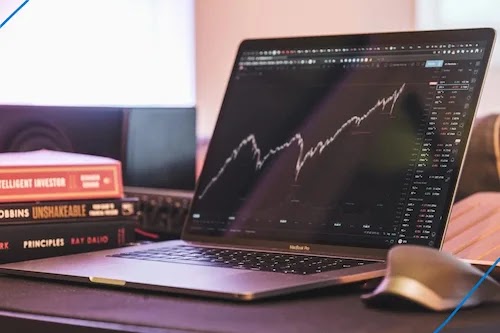**PannErgy's Strategic Share Repurchase: Boosting Value for Investors**
In a bold move to shore up investor confidence and enhance shareholder value, PannErgy, a leading player in the geothermal energy sector, has recently announced a strategic share repurchase program. This decisive action signifies the company's strong belief in its intrinsic value and long-term growth prospects, amidst an economic climate where many companies are struggling to maintain investor interest. In this blog post, we'll delve into the nuts and bolts of PannErgy's share repurchase initiative, examining its expected impact on the company's financial health, market performance, and most importantly, what it means for current and prospective investors. Join us as we explore the nuances of this corporate maneuver and its potential to catalyze a new phase of value creation for PannErgy's stakeholders.
**PannErgy Buys Back Shares to Enhance Shareholder Value**
- * PannErgy Plc has repurchased 15,000 of its own ordinary shares on the Budapest Stock Exchange, a move strategically designed to increase value for remaining shareholders.
- * This action aligns with the company's Share Repurchase Program, which aims to boost share value and return capital to investors.
- * PannErgy now holds 4,699,132 treasury shares, representing 23.50% of its total shares outstanding.
** Details of the Share Repurchases**
| **Date** | **Share Type** | **Quantity** | **Average Price (HUF/share)** |
|---|---|---|---|
| 22.12.2023 | PannErgy normal share | 5,000 | 1,260.5 |
| 27.12.2023 | PannErgy normal share | 5,000 | 1,256.5 |
| 28.12.2023 | PannErgy normal share | 5,000 | 1,251.1 |
**Understanding the Benefits of Share Repurchase Programs**
Share repurchase programs offer several compelling advantages for investors, including:
- * **Increased Share Value:** By reducing the number of outstanding shares in the market, buybacks can create a scarcity effect, potentially leading to higher share prices.
- * **Return of Capital:** Share repurchases effectively return capital to shareholders, which can be reinvested or used for other purposes, enhancing overall investment returns.
- * **Enhanced Financial Ratios:** Key metrics such as earnings per share (EPS) and return on equity (ROE) can improve as a result of share repurchases, making the company more attractive to investors.
- * **Signal of Confidence:** A share repurchase program often signals a company's belief in its own future prospects and financial strength, instilling confidence in the market and potential investors.
**Key Characteristics of Treasury Stocks and Their Impact**
Treasury stocks, also known as treasury shares, are shares that a company has repurchased from the open market but has not retired. These shares hold unique characteristics:
- * **No Voting Rights:** Treasury shares do not possess voting rights, as they are no longer considered outstanding shares.
- * **Potential Impact on Financials:** While they don't directly impact a company's cash flow, treasury shares can positively influence EPS and ROE.
- * **Flexibility for Future Use:** Companies can hold treasury shares for potential future use, such as employee stock options, acquisitions, or re-issuance to the market.
- **Q: What factors typically drive a company to engage in share repurchase programs?**
- **A:** Companies often engage in buybacks for various reasons, including:
- * To boost their share price and return value to shareholders.
- * To create a more attractive capital structure.
- * To offset the dilutive effect of stock options.
- * To sign self-belief of their destiny prospects.
- * To defend against hostile takeover attempts.
- **Q: What are the potential risks or drawbacks associated with share repurchase programs?**
- **A:** While share repurchases can offer benefits, it's essential to consider potential risks:
- * **Misallocation of Capital:** If a company repurchases shares at inflated prices, it could hinder future growth opportunities or limit resources for other investments.
- * **Increased Debt:** Repurchases often involve using cash or taking on debt, which could impact a company's financial flexibility.
- * **Market Manipulation:** In some cases, companies might use buybacks to artificially inflate their stock price, which could lead to market volatility and shareholder losses.
- **Q: How can investors evaluate the effectiveness of a share repurchase program?**
- **A:** Investors can consider several factors to assess the effectiveness of a buyback program:
- * **Impact on Share Price:** Has the share price increased following the repurchases?
- * **Changes in Financial Ratios:** Have EPS and ROE improved?
- * **Company's Cash Flow:** Does the company have sufficient cash flow to sustain the repurchase program without compromising its financial health?
- * **Management's Communication:** Has management clearly articulated the rationale and goals of the buyback program?



Comments
Post a Comment